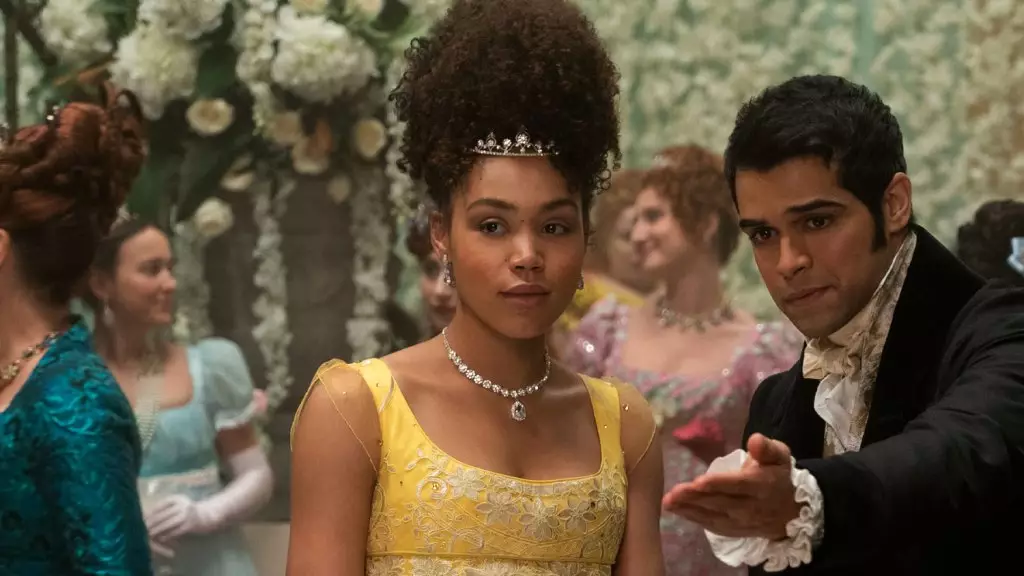Ruby Barker, known for her role as Marina in the hit drama series Bridgerton, is shedding light on her tumultuous experience on set and exposing the lack of support she received from Netflix and Shondaland during her darkest moments.
Barker revealed her struggles during an appearance on the LOAF Podcast, confessing that her mental health took a nosedive following the first season’s wrap. She expressed her disappointment that the production company seemed to prioritize the release of the show over the well-being of its cast members.
While portraying the character of Marina, a controversial woman grappling with a pregnancy scandal, Barker was simultaneously grappling with her own mental health demons. She shared how the isolation and emotional turmoil her character endured mirrored her own struggles off-screen.
What struck Barker the most was the deafening silence from both Netflix and Shondaland throughout her ordeal. Despite experiencing two psychotic breaks directly related to her work on the show, Barker was stunned that no one from the production or streaming company reached out to offer support or aftercare.
In her words, “Not a single person from Netflix, not a single person from Shondaland… have even contacted me or even emailed me to ask if I’m okay or if I would benefit from any sort of aftercare or support. Nobody.”
Barker recounts the juxtaposition of her personal and professional lives colliding in a whirlwind of change and chaos. As the show’s premiere loomed, her world transformed overnight, yet the support she needed was nowhere to be found.
She candidly shared, “It’s almost like I had this metaphorical invisible gun to my head to sell this show because this show is bubbly and fun. I don’t wanna come out and poo-poo on that because then I might never work again!”
Bridgerton, created by Chris Von Dusen and based on the book series by Julia Quinn, has taken the world by storm. However, this grasp of fame should not come at the expense of the mental well-being of its cast members.
Barker’s courageous decision to speak out serves as a reminder that the entertainment industry must prioritize the mental health of its performers. It is crucial that production companies and streaming platforms acknowledge the toll that the industry can take on individuals and offer support systems to navigate these challenges.
While the glitz and glamour may be alluring, it should never overshadow the well-being of those who bring stories to life.
Let Barker’s story be a catalyst for change, urging the powers that be to foster a culture of compassion, understanding, and support within the world of television and streaming.

